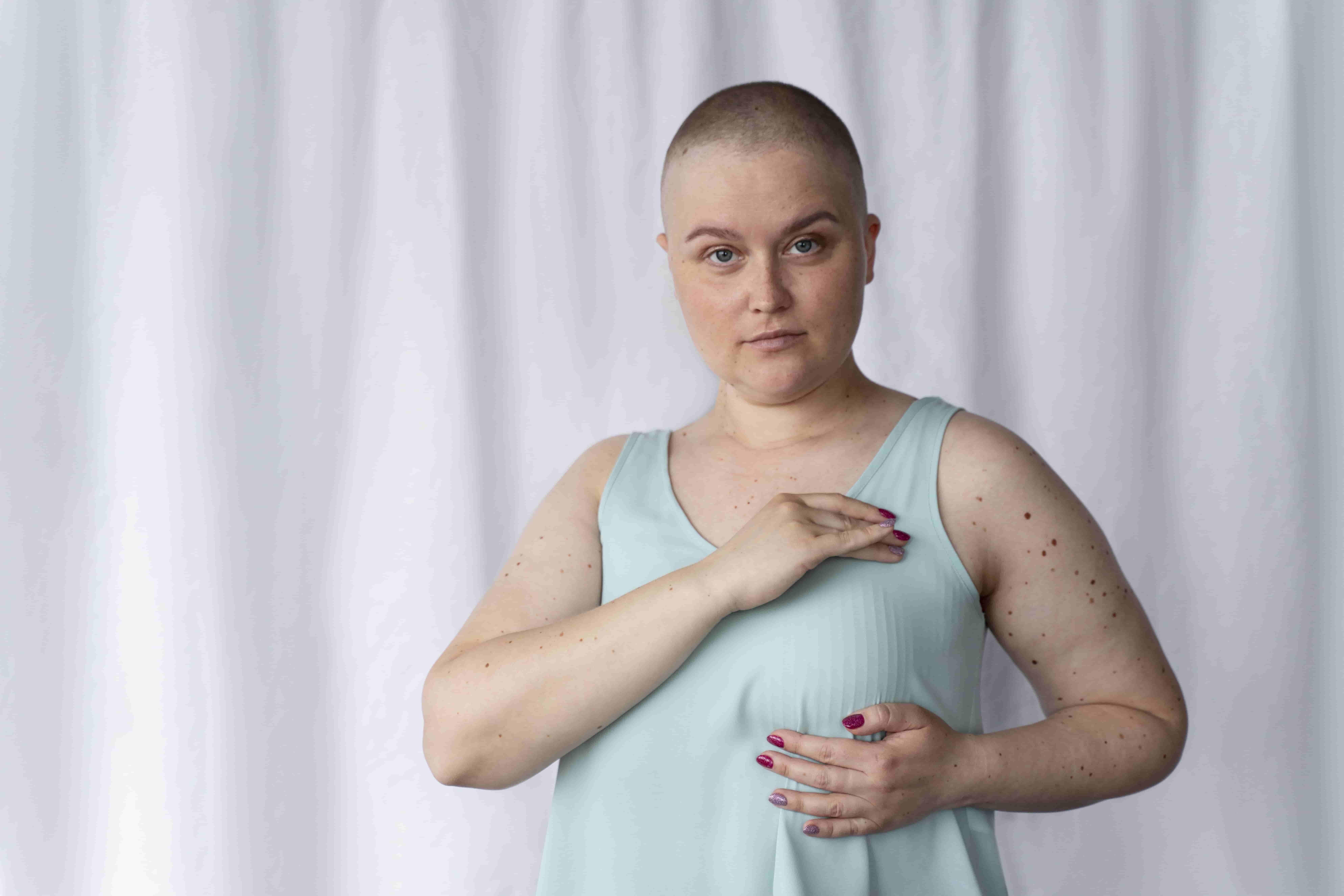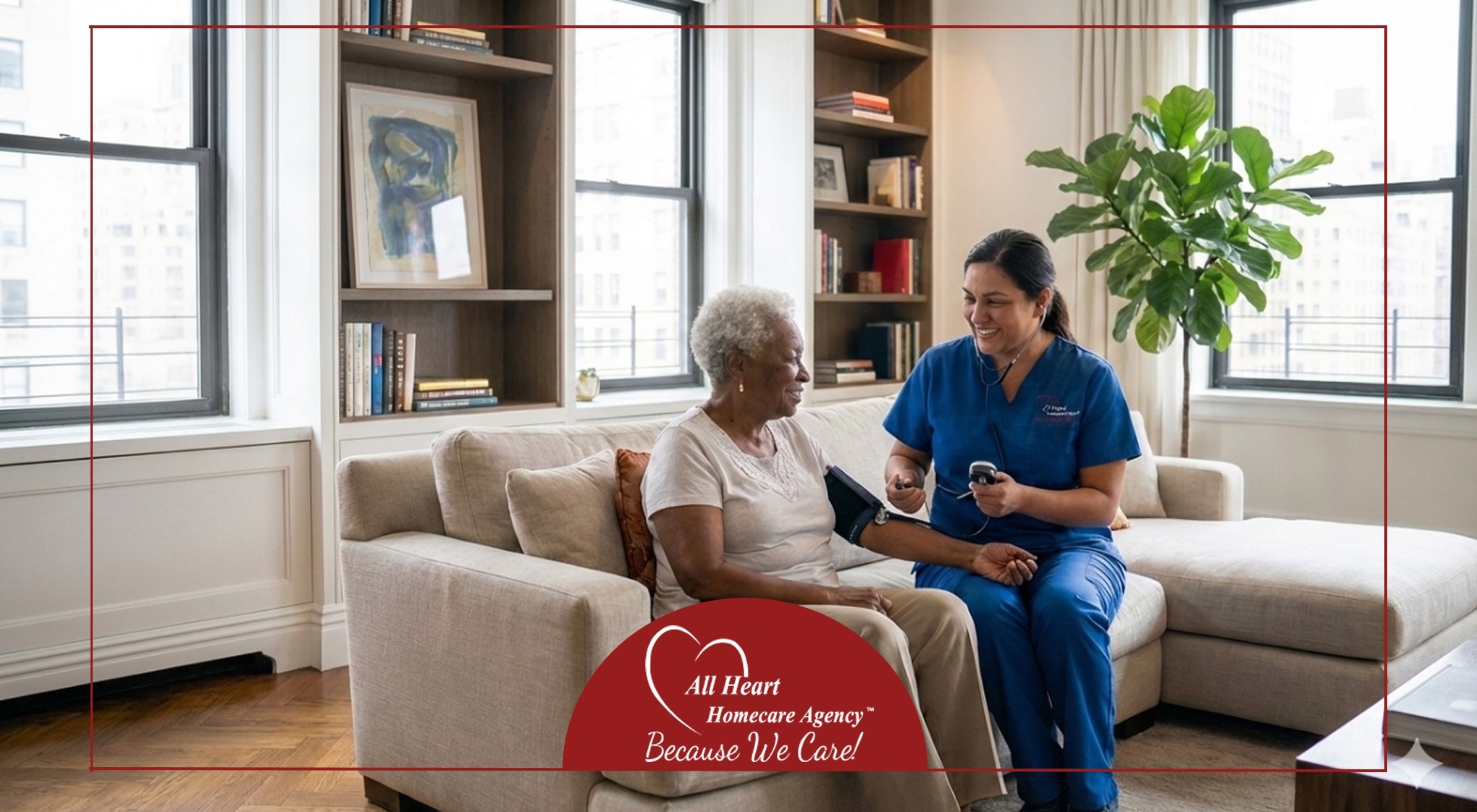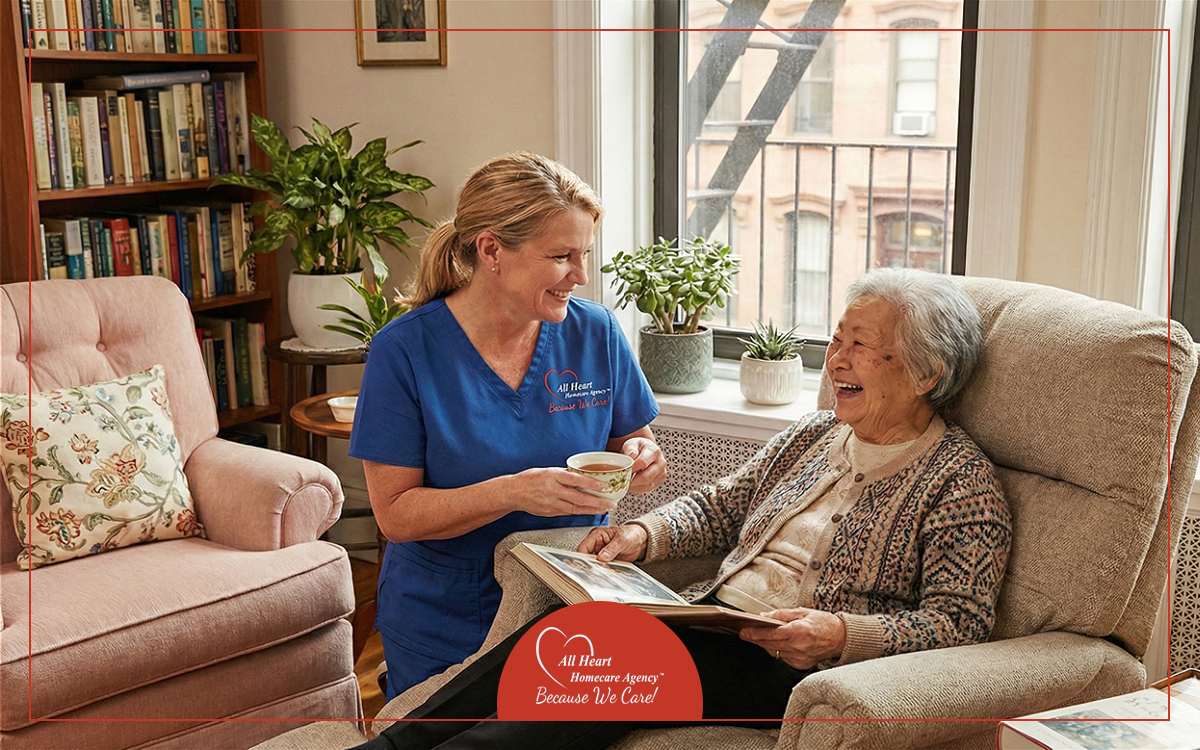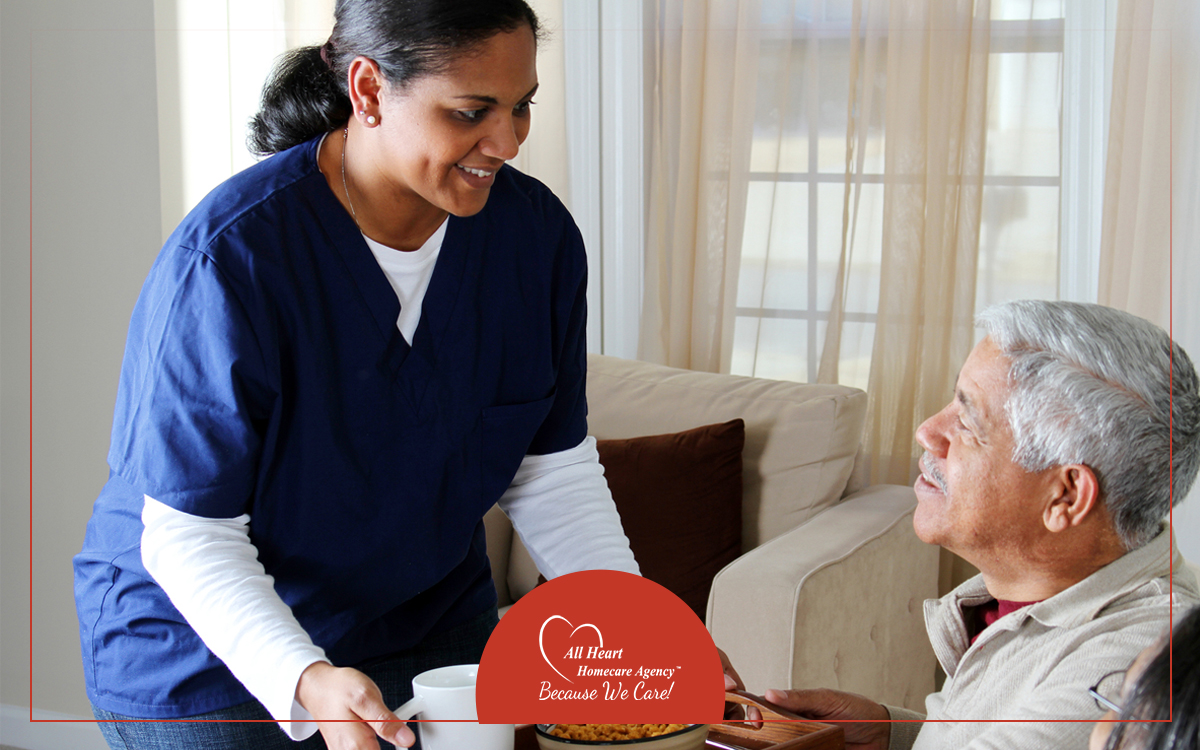How does home care support someone during breast cancer treatment?
Breast cancer treatment can make everyday life exhausting. Home care helps by providing practical support with meals, light household tasks, medication reminders, and transportation, while allowing the person to stay in the comfort of their own home. Just as importantly, it offers steady, compassionate presence during a time that can feel physically and emotionally overwhelming, easing stress for both the patient and their family.
October marks Breast Cancer Awareness Month, reminding us of the courage and strength shown by countless women and their families facing this challenging journey. When breast cancer enters your life, it doesn’t just affect the patient—it transforms the entire family dynamic, creating new roles, responsibilities, and emotional landscapes to navigate.
The path through breast cancer treatment can feel overwhelming, filled with medical appointments, treatment side effects, and countless decisions. Yet within this difficulty lies an opportunity for families to come together, creating a supportive environment where healing can flourish. Home care support becomes not just helpful, but essential in maintaining dignity, comfort, and quality of life throughout treatment.
Whether you’re supporting a mother, sister, daughter, or friend, this guide offers practical strategies and professional insights to help you provide the best possible care. We’ll explore how professional home care services can complement your family’s efforts, share practical approaches to managing treatment challenges, and connect you with resources that can make this journey more manageable.

Understanding Breast Cancer and Its Impact
Breast cancer affects approximately 1 in 8 women during their lifetime, making it the second most common cancer among women. The disease progresses through different stages, from early-stage localized cancer to more advanced forms that may have spread beyond the breast tissue. Each stage requires different treatment approaches, from surgery and chemotherapy to radiation and targeted therapies.
The emotional and physical challenges during treatment extend far beyond medical symptoms. Patients often experience fatigue that goes deeper than simple tiredness, affecting their ability to perform daily activities they once took for granted. Nausea, changes in appetite, and difficulty concentrating can make even basic tasks feel monumental. The emotional toll includes anxiety about the future, concerns about family impact, and grief over temporary or permanent changes to their body and lifestyle.
Family members naturally step into caregiver roles, often without preparation or guidance. You may find yourself becoming a medical advocate, transportation coordinator, household manager, and emotional support system all at once. This transition, though driven by love, can be deeply complex and emotionally draining.
Coordinating Medical Appointments and Follow-Up Care
Cancer treatment often involves multiple specialists, frequent appointments, and complex schedules. A centralized calendar system—digital or physical—can help keep everything organized and accessible to everyone involved.
When communicating with healthcare providers, organization is key. Keep a notebook or digital document for each appointment with questions, symptoms, and instructions. Use patient portals to maintain regular contact with medical teams and track updates between visits.
Timely follow-up care is essential. Lab results, imaging studies, and medication adjustments require prompt attention. Set clear expectations with each provider about how and when results will be communicated, and don’t hesitate to follow up if there’s a delay.
Managing Treatment Side Effects at Home
| Common Side Effect | Home Management Strategies | When to Seek Help |
| Fatigue | Plan activities during energy peaks, create rest stations throughout home, maintain gentle exercise routine | When fatigue prevents basic self-care or eating |
| Nausea | Keep crackers and ginger tea available, eat small frequent meals, avoid strong odors | When unable to keep fluids down for 24 hours |
| Pain | Use prescribed medications as directed, apply heat/cold as recommended, practice relaxation techniques | When pain isn’t controlled by prescribed medications |
Understanding these side effects helps families respond appropriately and know when professional intervention is needed. Fatigue during cancer treatment differs from normal tiredness—it can be overwhelming and doesn’t improve with rest alone. Creating a supportive environment means adjusting expectations and helping your loved one conserve energy for the most important activities.
Nausea management often requires trial and error to find what works best. Some patients find relief with ginger products, while others benefit from eating bland foods or avoiding certain smells. Keep the healthcare team informed about what strategies work and which don’t.

Pain management should always follow medical guidance, but complementary approaches like gentle massage, warm baths, or relaxation techniques can provide additional comfort. Never hesitate to contact the medical team if pain management isn’t adequate—there are many options available, and suffering is never necessary.
Balancing Caregiving with Personal Well-being
Caring for someone with breast cancer can consume all your emotional and physical energy if you don’t establish healthy boundaries. Setting realistic expectations means acknowledging that you can’t solve everything or be available every moment. This isn’t selfish—it’s essential for maintaining the stamina needed for long-term support.
Prioritizing self-care activities isn’t optional during this time. Whether it’s maintaining your exercise routine, spending time with friends, or simply taking a long bath, these activities help you recharge and remain emotionally available for your loved one.
Seeking support from respite care services allows you to step away without guilt, knowing your loved one is in capable hands. Other family members, friends, or professional services can provide the coverage you need to maintain your own health and well-being.
Emotional and Practical Support Strategies for Your Family
Learning About Breast Cancer and Its Treatment with Clarity
Knowledge empowers both patients and families to make informed decisions and feel more in control. Reliable sources include the American Cancer Society, National Cancer Institute, and your treatment center’s educational materials. Understanding the treatment plan, potential side effects, and expected timeline helps reduce anxiety and improve communication with healthcare providers.
Offering Specific, Meaningful Help to Your Loved One
Instead of saying “let me know if you need anything,” offer specific assistance: “I’m going grocery shopping Tuesday—what can I pick up for you?” or “I’d like to drive you to your appointment Thursday.” Specific offers are easier to accept and more likely to address actual needs.
Communicating Openly and Maintaining Comforting Daily Routines
Honest, gentle communication helps maintain connection while respecting your loved one’s need for normalcy. Continue family traditions when possible, but be flexible about modifications. These routines provide emotional anchoring during a time of significant change.
Planning for Treatment Costs and Accessing Financial Assistance
Cancer treatment costs can be substantial, even with good insurance. Research assistance programs early in the process:
- Contact the American Cancer Society for information about local financial assistance programs
- Investigate manufacturer assistance programs for expensive medications
- Explore nonprofit organizations that provide grants for cancer patients
- Discuss payment plans with healthcare providers and hospitals
Resources and Support We’re Here to Connect You With
Support Groups and Helplines for You and Your Loved One
Connecting with others who understand the breast cancer journey provides invaluable emotional support and practical advice. Many hospitals offer support groups specifically for breast cancer patients and their families. Online communities can be particularly helpful when transportation or energy levels make in-person meetings difficult.
The American Cancer Society’s 24-hour helpline (1-800-227-2345) provides information and support whenever you need it. Local cancer centers often have social workers who can connect you with appropriate resources in your area.
Cancer Organizations Offering Education and Financial Aid
Beyond the American Cancer Society, organizations like Susan G. Komen, Living Beyond Breast Cancer, and Breast Cancer Research Foundation offer educational resources, support programs, and financial assistance. Many provide materials in multiple languages to serve diverse communities.
How Our Professional Home Care Services Can Help
An Overview of Our Specialized, Compassionate In-Home Care Programs
At All Heart Homecare, we understand that breast cancer treatment affects every aspect of daily life. Our specialized programs are also designed to take care of cancer patients, providing the expertise and compassion needed during this critical time.
Our caregivers undergo comprehensive background checks, specialized training in cancer care support, and ongoing education about new care techniques and approaches. This ensures they’re equipped to handle the unique challenges that come with breast cancer treatment, from understanding medication schedules to recognizing when symptoms require immediate medical attention.
Essential Support We Provide
Professional home care services can address many daily challenges that become difficult during treatment:
- Personal care assistance including bathing, grooming, and dressing when energy levels are low
- Meal preparation and nutrition support to maintain proper nutrition despite appetite changes
- Light housekeeping and organization to maintain a comfortable living environment
- Mobility assistance and fall prevention during periods of weakness or dizziness
- Transportation to medical appointments when family members aren’t available
- Medication management to ensure proper timing and dosing of complex treatment regimens

The Benefits of Our Trained Caregivers and Meaningful Respite for Your Family
Our caregivers provide more than basic assistance—they offer companionship, emotional support, and professional expertise that allows family members to maintain their own well-being. This respite care is crucial for preventing caregiver burnout and ensuring the entire family can sustain their support throughout the treatment journey.
With 24/7 availability and regular supervision, families can feel confident that their loved one is receiving consistent, high-quality care even when they need time to rest, work, or attend to other responsibilities.
How to Access Our Professional Services with Ease
All Heart Homecare makes accessing our services straightforward and stress-free. We serve the Bronx, Brooklyn, Manhattan, Queens, and Staten Island, providing multilingual support to serve families in their preferred language.
We create personalized care plans because no two clients are identical, and we consider cultural sensitivity when matching caregivers with clients, taking into account language, cultural background, and personality compatibility.
Our Commitment to You and Your Family
The journey through breast cancer treatment requires strength, courage, and support—qualities we see every day in the remarkable women and families we serve. Your dedication to providing the best possible care for your loved one reflects the deep bonds that make families resilient during life’s most challenging moments.
At All Heart Homecare, we’re honored to stand alongside you during this journey. Our commitment extends beyond basic care services to encompass the emotional support, professional expertise, and reliable presence that allow families to focus on healing and connection. With over 13 years of experience and a team that genuinely loves what they do, we understand that exceptional care comes from the heart.Remember that seeking help is a sign of wisdom, not weakness. Professional home care support allows you to remain the family member, friend, or partner your loved one needs, while ensuring they receive expert care for their daily needs. Together, we can create an environment where healing, dignity, and love flourish throughout the treatment journey and beyond. Contact us today for more information on how All Heart Homecare can assist you today!












